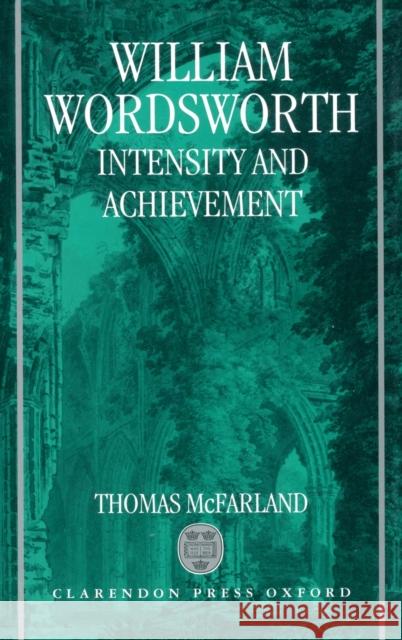William Wordsworth: Intensity and Achievement » książka
William Wordsworth: Intensity and Achievement
ISBN-13: 9780198112532 / Angielski / Twarda / 1992 / 192 str.
This book seeks to isolate the special factors that generate Wordsworth's greatness as a poet. Setting out from a dissatisfaction with the current trend towards New Historicism in Wordsworthian criticism, it endeavours to qualify the social and political bias of that criticism by a renewed assertion of the poetic primacy of the personal and the qualitative.Taking Marjorie Levinson's reading of `Tintern Abbey' as the book's starting point, McFarland sets forth a different way of approaching the poem, and then identifies `intensity' as the secret of Wordsworth's power. The permutations of that quality are illustrated by careful examinations of `Ruth', of the `spots of time', and of `Home at Grasmere', which is revealed as containing the incandescent centre of Wordsworth's values. There follow chapters on Wordsworth's dessication, which is seen as precisely the absence of intensity; and on the aspiration of The Recluse, which is seen to fail largely because the personal intensity necessary to complete the venture had been used up in the opening of `Home at Grasmere'. McFarland then discusses the special way in which Wordsworth assumed the prophetic stance which was essential to his poetic vision and was adopted in the intense personal confidence that he possessed the truth. The book concludes with a reading of The Borderers, not as a successful play but as a disposal chamber for the dark matter of Wordsworth's cosmos; the writing of the play is seen as necessary to clear the way for the purified current of Wordsworthian intensity to flow towards supreme poetic achievement.
This book seeks to isolate the special factors that generate Wordsworth's greatness as a poet, qualifying the social and political bias of recent New Historicist criticism of Wordsworth by stressing the poetic primacy of the personal and the qualitative.











